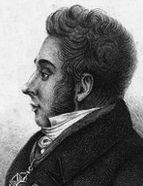

As for the Quadro Elementar das relações políticas e diplomáticas..., this too is based on a mythical view and relationship, one that becomes almost sacred, when dealing with treaties and conventions between peoples and states. Santarém reminds us that in Classical Greece “the peoples solemnised the celebration of their treaties with the most brilliant and pomp-filled festivities” and that in Ancient Rome too they “engraved their treaties on columns” (in Quadro Elementar..., vol. I, 1842, pp. XVI-XVII). As documents, the Viscount viewed treaties as fundamental pieces to not only analyse the history of humanity and human civilisation, but also to analyse the Portuguese identity. He wrote that “treaties and other acts with other nations are the fundaments of all [internal] political and civil laws” (in Índice Geral Cronológico Sistemático..., n.d., f. LVIII, not numbered). He also wrote that within Portugal’s foreign relations “are rightly enclosed her history, her Public Law and her titles to being an independent nation” (in Corpo Diplomático, contendo todos os tratados..., vol. I, Paris, 1846, p. VII).
In fact, there is a whole language common to Santarém’s works referring to convention-related Portuguese Public Law, be it internal (the Memórias para a História... and the Manifesto...), or external (the twelve volumes of the Quadro Elementar... and the Corpo Diplomático...). For this historian, these two types of convention-related Public Law, pre-constitutional and traditional, were both based on the cortes and treaties – on the conventions signed between traditionally assembled social bodies, the basis for a sovereign’s legitimacy, and on the conventions signed between states represented by diplomatic agents accredited according to a specific European norm.
It is from this dual legality, internal and external, politico-institutional and diplomatic, that the Viscount’s triumphalist, nationalist, anti-decadentist and ethno-historicist discourse must be understood. In periods of national crisis and civil war, like those Portugal experienced from the French Invasions up to the Regeneration, the Viscount of Santarém claims – like so many other Portuguese historians – that the splendour of national, military, diplomatic and geographical feats are a form of ideological and identitary cement capable of covering over the gaps and cracks that the weapons used by the different factions, the tribunals and historical ignorance were causing to appear in the walls of the Portuguese edifice.
